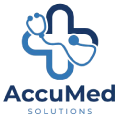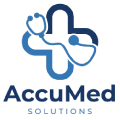Best Practices for Healthcare Providers in Revenue Cycle Management
Revenue Cycle Management (RCM) is the foundation of financial stability for healthcare organizations. An efficient RCM process ensures timely reimbursements, reduces claim denials, and increases overall cash flow. In today’s changing healthcare landscape, implementing best practices in RCM is critical for maintaining operational efficiency and improving patient satisfaction. This article discusses critical techniques for helping healthcare providers streamline their RCM procedures and achieve financial success.

Few things you should know:
- Timely claim submission reduces payment delays and denials.
- Accurate documentation is key to maximizing reimbursements.
- Regular audits help identify and fix billing inefficiencies.
- Patient-friendly billing improves collections and satisfaction.
- Staying updated on coding changes prevents compliance issues.
“The latest updates to the CPT code set reflect advancements in contemporary clinical practice and ensure the code set fulfills its vital role as the trusted universal language of medicine.”
— Gary Marlow, Vice President of Finance for Beverly Hospital and Addison Gilbert Hospital.
Few trends that will define the future of the salon business.
Best Practices for Healthcare Providers in Revenue Cycle Management
1.Verify the patient’s eligibility and benefits upfront.
One of the most important tasks in RCM is to confirm the patient’s insurance eligibility and benefits before providing treatments. This reduces billing errors and ensures that providers are properly reimbursed.
2. Use accurate coding and documentation.
Medical coding errors are the major cause of claim denials. Ensuring that documentation is precise and compliant with ICD-10 and CPT coding standards helps boost claim acceptance rates and save rework.
3. Streamline the billing process.
Automated billing solutions can improve efficiency by decreasing manual errors and accelerating the revenue cycle. Electronic claim submission ensures speedier processing and lowers administrative hassles.
4. Monitor Key Performance Indicators (KPIs).
Tracking key performance indicators including claim denial rates, days in accounts receivable, and collection rates can assist healthcare providers in identifying inefficiencies and making data-driven decisions.
5. Improve patient payment collection.
Patient collections have become increasingly significant as the number of high-deductible health plans has grown. Providing several payment alternatives, clear billing summaries, and upfront cost estimates can improve patient satisfaction and assure timely payments.6. Maintain Compliance with Regulatory Changes.
Healthcare rules and payer policies change often. Keeping up with Medicare, Medicaid, and private payer rules is critical to avoiding compliance concerns and claim denials.
7. Conduct regular audits and training.
Routine audits of coding, documentation, and billing processes can help uncover opportunities for improvement. Continuous staff training assures compliance with best procedures and reduces billing errors.
8. Utilize Revenue Cycle Management Services.
Outsourcing RCM to skilled medical billing specialists, such as Accumed, can assist healthcare providers in improving revenue cycles while focusing on patient care.

